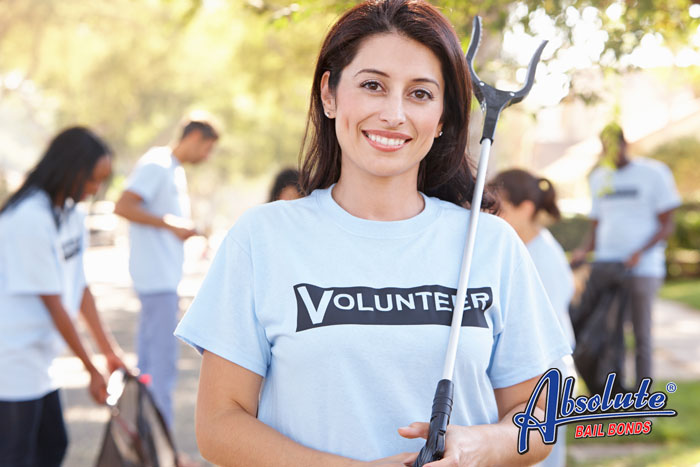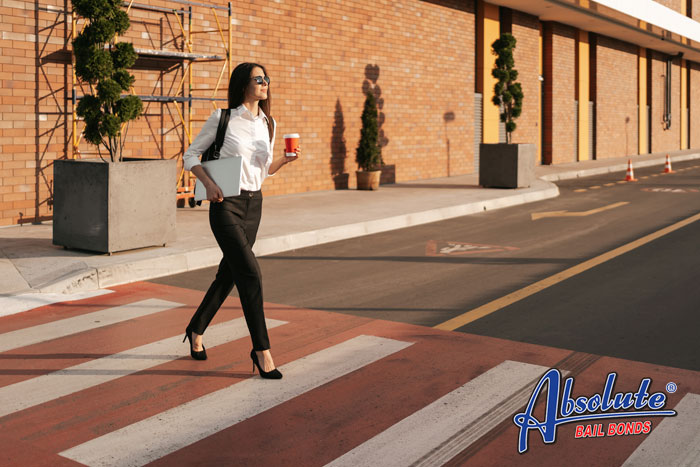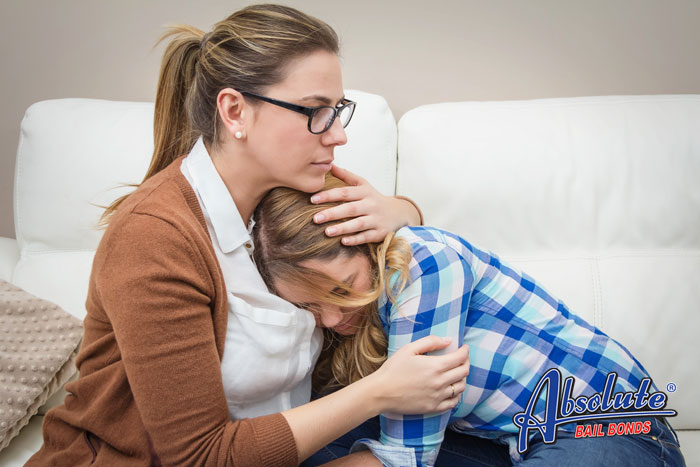
Littering in California
You already know that you’re not supposed to litter. It’s common knowledge that you shouldn’t throw things out your car windows, leave trash scattered around a campsite, or drop food wrappers while you’re walking.
What you might not know is exactly what happens if you fail to do the right thing and clean up after yourself.
California’s littering laws are some of the toughest in the country.
California lawmakers created California Penal Code (PC) 374 specifically to deal with the issue of littering. The great thing about this law is that not only does it create clear-cut consequences for littering, it also helps define what is a waste product, which helps clear up some of the gray areas other states struggle with when dealing with littering cases.
The law defines littering in California as, “littering means the willful or negligent throwing, dropping, placing, depositing, or sweeping, or causing any such acts, of any waste matter on land or water in other than appropriate storage containers or areas designated for such purposes.”
The law goes on to clarify that the following items are considered waste and that improperly disposing of them is considered littering:
- Lighted or nonlighted cigarette, cigar, match, or any flaming or glowing material
- Garbage/trash
- Refuse
- Paper
- Packaging/construction material
- The carcass of a dead animal
- Any nauseous or offensive matter
- Any object that’s likely to injure any person or create a traffic hazard.
While the law does a nice job of stating what litter is, it’s not as helpful when it comes to the consequences associated with getting caught littering.
The first thing you have to understand is that the consequences for throwing fast-food wrappers out your window are going to be significantly different than leaving a mattress in a ditch, or failing to dispose of hazardous waste.
At this point, littering is treated as an infraction, not a misdemeanor. Don’t assume that the lack of jail time means you can litter to your heart’s content. Fines for littering can range from $100-$750 depending on how many times you’ve been cited for littering and what type of materials were involved in the littering infraction. You’ll also be required to complete anywhere from 8-24 hours of community service.

Fall Camping Safety Tips in California
The fall is a great time to go camping in California. Not only is the weather a little cooler, but the bugs aren’t as bad either. Another advantage is that since school is in session, there are usually fewer kids at the local campsites which means the campgrounds and trails are a little quieter.
There are a few things you need to keep in mind when it comes to safety and fall camping.
The first is that you have to be mindful of the weather. The biggest drawback to camping in the fall rather than the summer is that the weather changes faster and those changes can be more extreme. This is especially true if you’re going into the mountains. Not only will you want to watch the weather reports, but you’ll also want to pack some additional clothing that you can change into if the temperature suddenly drops.
Always let someone know where you are going, even if you are just going on a one-night hike/camping trip on your own. No matter how careful you are, there is a chance you’ll be hurt. Knowing when you’re supposed to be back and your last location drastically improves the chances of a quick rescue. The quicker the rescue, the better the odds of making a full recovery.
Keep your phone charged. Yes, you might crave solitude and escape, but that doesn’t mean you should leave your phone home. Before leaving make sure it’s fully charged so that you can use it if you get into trouble. While you want to keep your phone close at hand during the entire camping trip, you don’t have to keep it turned on if you don’t want to deal with texts and calls the entire time you’re camping. Feel free to turn it off and keep it in your pocket.
Be mindful of fire safety the entire time you’re camping. Fall wildfires are a serious concern in California. You don’t want to be the cause of one. Always have plenty of water on hand, create a fire ring, and keep the campfire as small as possible. Douse your fire before you leave the camp and make sure the ashes are cold and that there are no remaining embers that could start a wildfire.
Be realistic about your ability. Stick to trails that you are physically suited for and don’t push yourself too hard, especially if you’re on your own. Don’t take any chances that could end with you getting hurt or overwhelmed by exhaustion. If you’ve never gone camping before, bring an experienced camper with you so they can teach you how to camp properly.
The more mindful you are about safety, the more you’ll enjoy your fall camping adventure in California.

California Public Intoxication Laws
MMany people assume that as long as they don’t get behind the wheel and try driving home they don’t have to worry about how much they drink when they go out. While the decision to never drive after you’ve been drinking is always wise, that doesn’t mean you can get a plastered as you want. There is always a chance that your night of heavy drinking at the bar could result in you getting arrested for public intoxication in California.
The good news is that if you simply have one too many while you’re at the bar, you probably don’t have too much to worry about. California lawmakers have made it obvious that the only time legal concerns and public intoxication combine is when you’re so heavily under the influence of drugs or alcohol that you’re unable to keep yourself and others safe.
For example, if you’re so drunk that you aren’t aware of traffic and start walking down the middle of the road, you’ll be arrested and charged with public intoxication. The same is true if you get so drunk while you’re at the bar that your normal mild-mannered nature abandons you and you start making threats or behaving in a lewd manner.
Public intoxication in California is a misdemeanor. If you’re convicted, the maximum sentence is six months in jail and/or a $1,000 fine. In many cases, the individual must perform a specified number of community service hours.
The good news about public intoxication is that it won’t impact your driving record. The bad news is that the charge could hurt your future. It’s possible that the charge will make it harder to qualify for scholarships, land your dream job, and be approved for an apartment rental.
The only way you can be charged with public intoxication is if you’re in a public area. That means the best way to avoid the charge is staying home when you decide you want to spend the evening drinking.

Crosswalk Safety in California
Walking to work means you don’t have to worry about getting caught in a traffic jam. It’s a great way to build some stamina while also burning a few calories. It also provides you with the means to start slowing down and develop a connection with the world you live in.
Just don’t think that walking to work is safer than driving yourself. A surprising number of California pedestrians are killed annually. According to the California Office of Traffic Safety, there were 972 pedestrian deaths in 2019. Approximately 22% of fatal traffic episodes in California involve a pedestrian. These alarming statistics prompted California lawmakers to pass the “Right-of-Way at Crosswalks” law.
The Right-of-Way law is written up in Code, Section 21950(a). When you read through the formal law, you’ll learn that drivers are legally required to yield to a pedestrian who is strolling through a crosswalk. The law requires that drivers yield to the pedestrian in both marked and unmarked crosswalks. The implementation of the law also requires that drivers use a little additional care when approaching a crosswalk and be on the lookout for pedestrians who may be about to step onto the street. If a pedestrian is stepping onto the street, the driver will have to stop to allow the pedestrian to safely cross the road.
Another issue that’s dealt with in the Right-of-Way law is passing while driving through a crosswalk. Passing while driving through a crosswalk is dangerous for several reasons, including that the passing driver may not see a pedestrian until it’s too late.
The interesting thing about California’s Right-of-Way law is that it’s designed to protect the rights of both pedestrians and drivers. Drivers do have the right away at crosswalks that are controlled with signals, provided the signal indicates that the driver can go. In this situation, the pedestrians are supposed to yield for drivers. However, drivers do have to wait for slow-moving pedestrians who may be struggling to reach the opposite side in a timely fashion, and the driver must be prepared to take safe and evasive action if a distracted pedestrian fails to notice the sign.
Drivers who are caught failing to adhere to California’s Right-of-Way law will likely receive a traffic citation which will involve a steep fine, points, and the possibility of having the state consider revoking their driving privileges.

What to Do if You’re Being Stalked
Every single year, approximately 7.5 million Americans become the victims of a stalker. If you suspect that you’ve attracted the attention of a stalker you must remain calm while simultaneously taking steps to protect yourself.
Don’t Dismiss the Threat
One of the biggest mistakes many stalking victims make is deciding that they are imagining things or that the situation isn’t all that serious. When it comes to a stalker, it’s best to be over-cautious. Being the victim of a stalker not only puts your mental health at risk, but it can also be life-threatening. The University of Gloucestershire conducted a six-month study that revealed that stalking was a component in 94% of the studied homicides.
As soon as you even suspect you’ve attracted the attention of a stalker, you need to take steps to protect yourself.
Block Your Social Media Accounts
Social media has made stalking easier than ever before. Routing posts provide an incredible amount of information that a stalker will use against you. When you feel that you’ve attracted the attention of a stalker, set all of your online profiles to private and stop posting updates, particularly updates that a stalker could use to figure out where you’re going and your routine.
Alert Loved Ones to the Situation
Even if you only have a funny feeling about someone, you should talk to your loved ones about the situation. Not only will they help you decide if you’re imagining things, but they can also take steps to make sure you’re protected. A perfect example of how alerting a loved one to the situation will help you out is that they’ll be willing to accompany you on errands. Not only is there safety in numbers, but the second pair of eyes means you will have a witness to the stalking which will strengthen your case if you have to press charges.
Start Keeping a Record
Pull out a notebook and start recording everything that relates to your stalker. This record should include gifts you’ve received, any time they’ve been in the same location as you, and all virtual and in-person conversations you’ve had with them. It’s a good idea to keep copies of these records in different locations. The data you collect will be a key piece of evidence against your stalker.
Get Serious About Personal Protection
You can’t afford to get casual with your personal protection. As soon as you feel that you’re becoming the victim of a stalker, you need to take a long look at your current situation and evaluate how you can make it safer. You need to lock your doors. You need to alert loved ones about where you’re going and when you’ll be back. Consider taking a self-defense class. Get into the habit of frequently checking in with loved ones. You may even want to consider staying with a friend or loved one until you can figure out how to resolve the situation.
Talk to the Police
As soon as you start to feel threatened by the stalker, it’s time to contact the police. The amount of protection they can provide will depend on your exact circumstances. Even if the situation hasn’t escalated to the point of you being able to obtain a restraining order or file charges against your stalker, contacting the authorities is always a good idea since it officially shows that you’re concerned about the situation and creates yet another record that strengthens your case. The police will also likely have some advice about additional steps you can take to protect yourself.
The most important thing to remember when you’ve attracted the attention of a stalker is to cut your ties with them and to trust your instincts.




